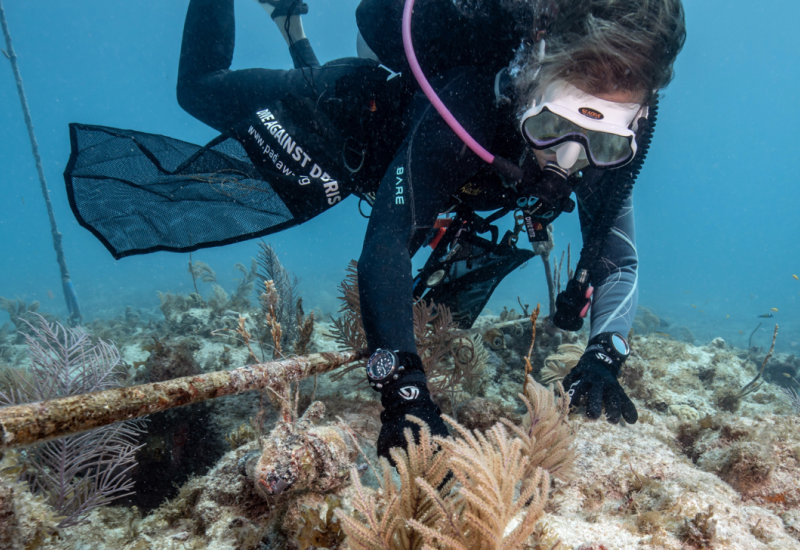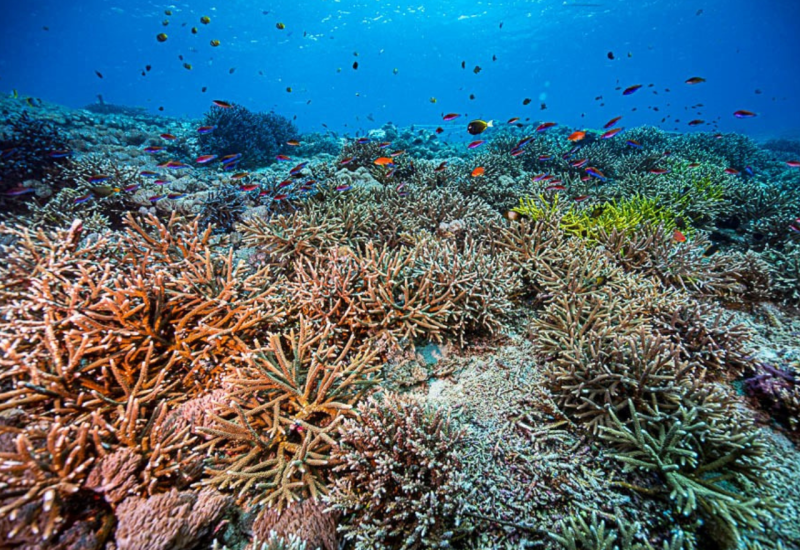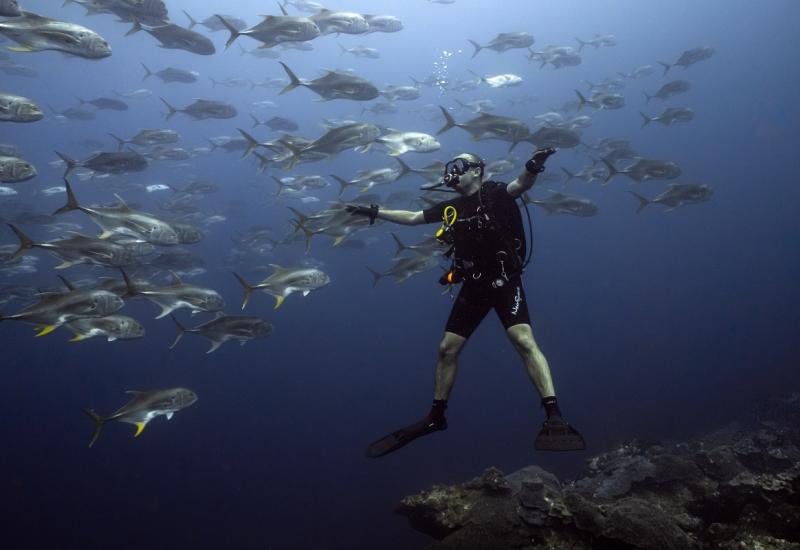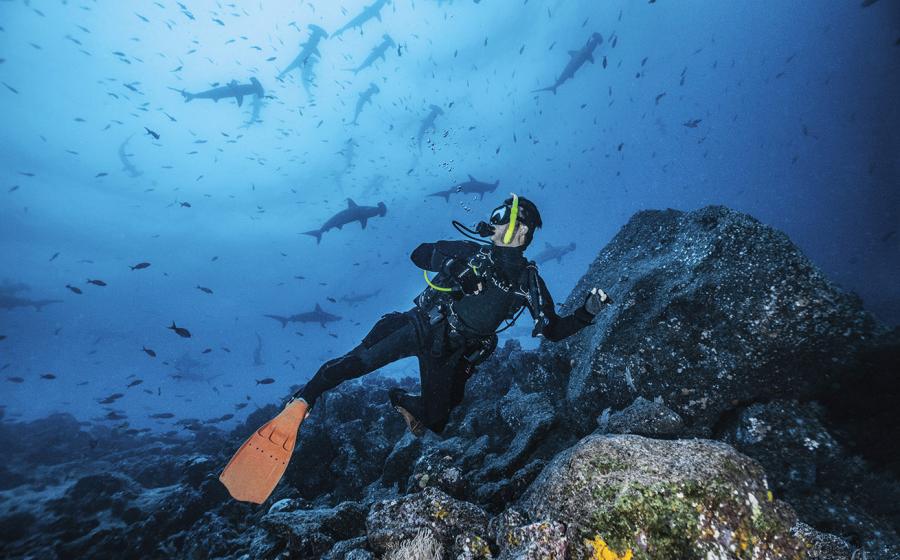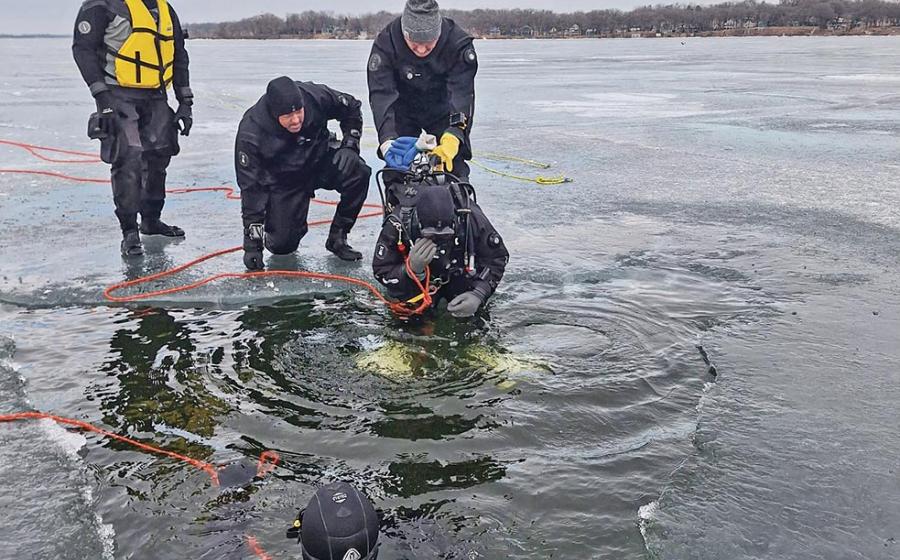How Whale Poop Helps the Ocean
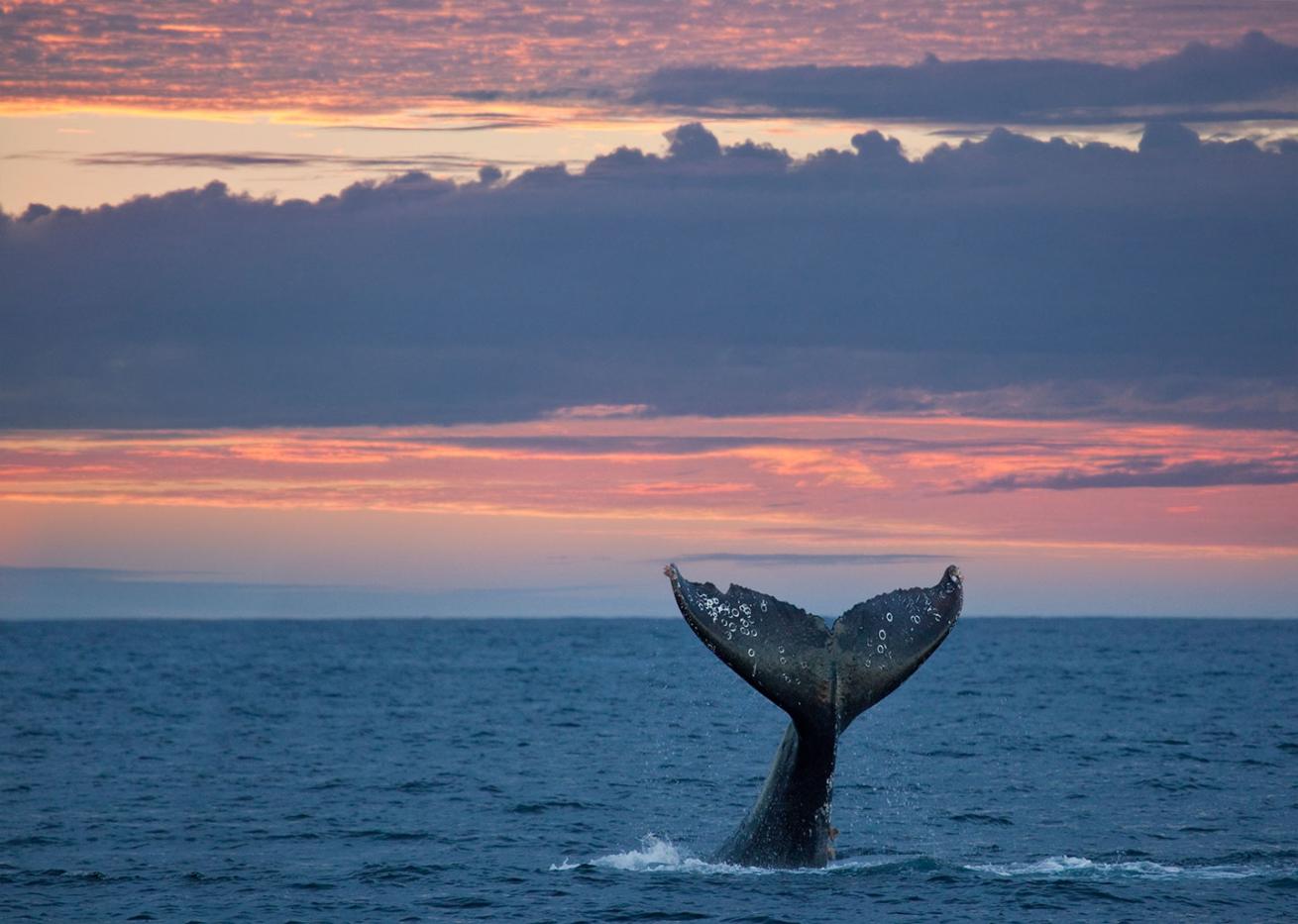
iStockAfter feeding at depth, whales return to the surface — and poop. This “whale pump” provides many nutrients, in the form of feces, to support plankton growth.
We scuba divers love our encounters with majestic whales, and if you’ve ever been on a whale-watching expedition, you’re probably familiar with the chunky orange clouds of whale poop these animals leave on the surface.
Turns out, whales — many species of which had been hunted to the brink of extinction for their meat and oil — and their poop have a positive impact on how the ocean works, according to researchers. It’s one of many examples of how whales maintain the health of oceans described in a scientific paper by University of Vermont conservation biologist Joe Roman and nine other whale biologists from around the world.
Roman, lead author of the study, and the team of biologists tallied several decades of research on whales from around the world. It shows that whales, in fact, make a huge difference — they play an important role in maintaining a healthy ocean ecosystem.
“The decline in great whale numbers, estimated to be at least 66 percent and perhaps as high as 90 percent, has likely altered the structure and function of the oceans,” Roman and his colleagues wrote in the online edition of Frontiers in Ecology and the Environment and in the Proceedings of the National Academy of Sciences. “But recovery is possible and in many cases is already underway.”
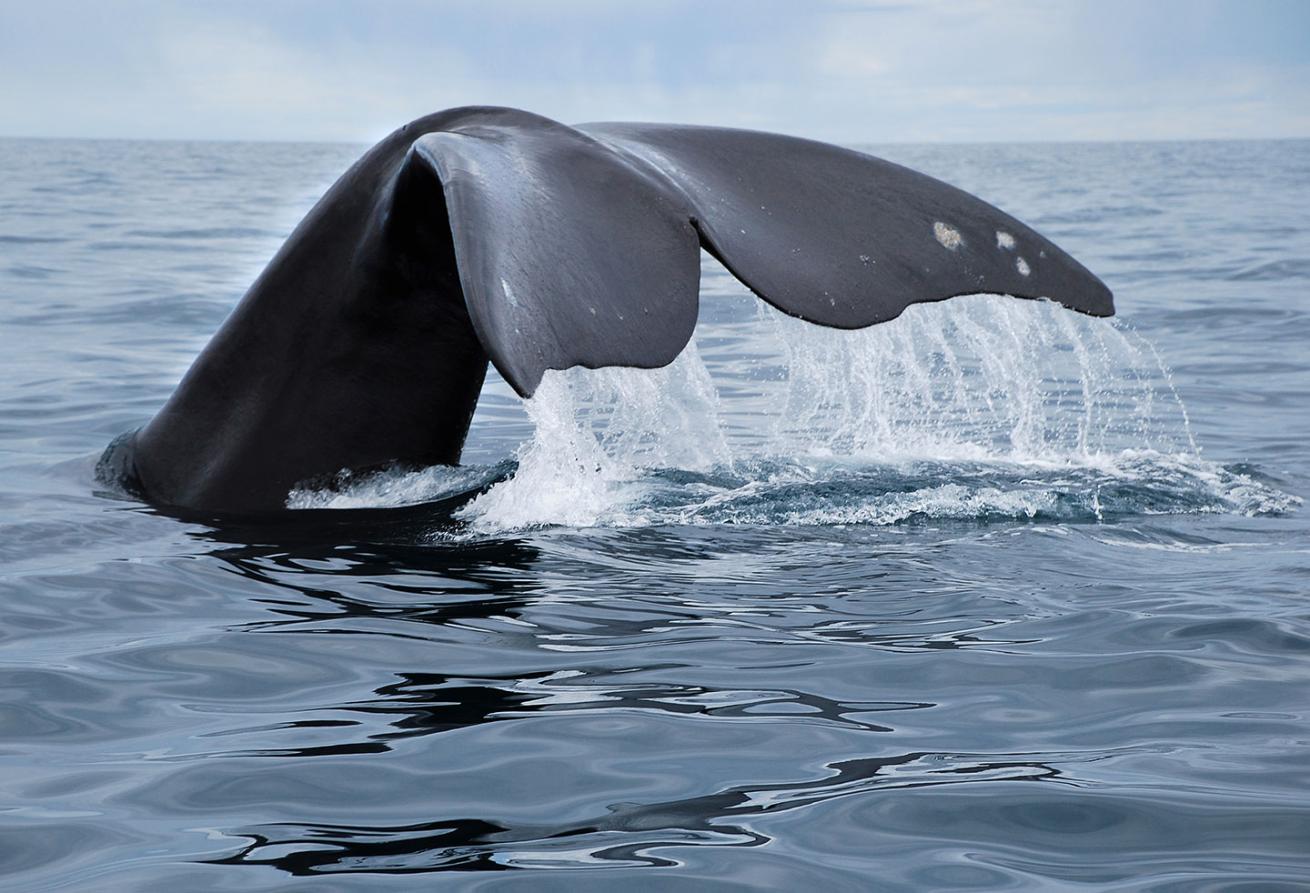
iStockEven after they die and sink to the bottom of the sea, whales continue to benefit the ocean.
The so-called "great whales" — such as sperm whales — are what the biologists refer to as "the ocean’s ecosystem engineers": They consume fish and invertebrates, and are themselves prey to other predators like killer whales. As they feed and die, nutrients are released into the ocean.
“They can increase nutrients in areas where they are feeding," Says Roman. "So whales dive deep to feed. They come to the surface and, as it turns out, they defecate or they release whale poop at the surface. That has lots of nitrogen and other nutrients so it can increase productivity in areas where whales are feeding and releasing fecal plumes near the surface — which supports plankton growth. The study authors describe this process as a “whale pump.” Whales also move nutrients thousands of miles from their feeding grounds in the colder waters of the Arctic to the warmer waters where they travel to migrate to calve, the study notes.
Even in death, when the whale comes to rest on the ocean floor, it continues to benefit the ocean: “That also brings nutrients down there and lots of habitats for species that depend entirely on those whale falls,” Roman said.
READ THE UNIVERSITY OF VERMONT STORY HERE.
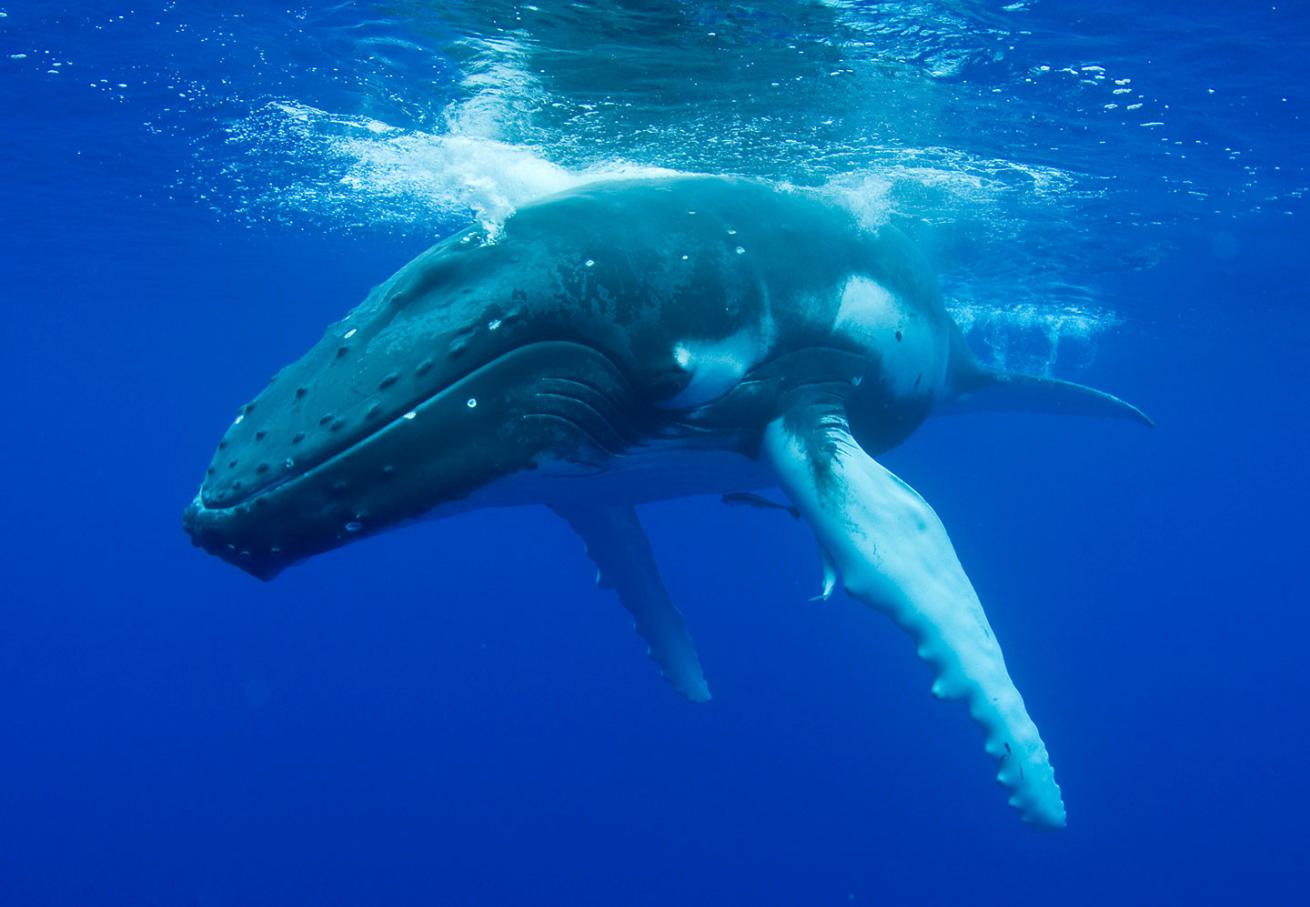
iStockIn the past, ocean scientists have lacked the ability to study and observe directly the functional roles of whales in marine ecosystems. Now with radio tagging and other technologies they can better understand these roles.
A whale carcass stores a significant amount of carbon and provides habitat and food for a variety of marine creatures. “Dozens, possibly hundreds, of species depend on these whale falls in the deep sea,” Roman notes.
“Our models show that the earliest human-caused extinctions in the sea may have been whale fall invertebrates, species that evolved and adapted to whale falls,” Roman said. “These species would have disappeared before we had a chance to discover them.”
“The focus of much marine ecological research has been on smaller organisms, such as algae and planktonic animals," says Roman. "These small organisms are essential to life in the sea, but they are not the whole story,” Roman said.
The study's observations of whales will provide a more accurate understanding of historical population dynamics and “are likely to provide evidence of undervalued whale ecosystem services,” note the 10 scientists who co-authored the paper. “This area of research will improve estimates of the benefits — some of which, no doubt, remain to be discovered — of an ocean repopulated by the great whales.”
“Our study opened up a new vision for the planet,” Roman said. “In a sense, it provides a blueprint for ecological restoration: helping marine mammals recover, returning the natural flow of rivers, reducing overfishing, and giving large areas of land back to wild animals.”
LOVE DIVING AND SNORKELING WITH BIG ANIMALS? CHECK OUT THE BEST ENCOUNTERS WITH THE OCEAN'S LARGEST CREATURES.


